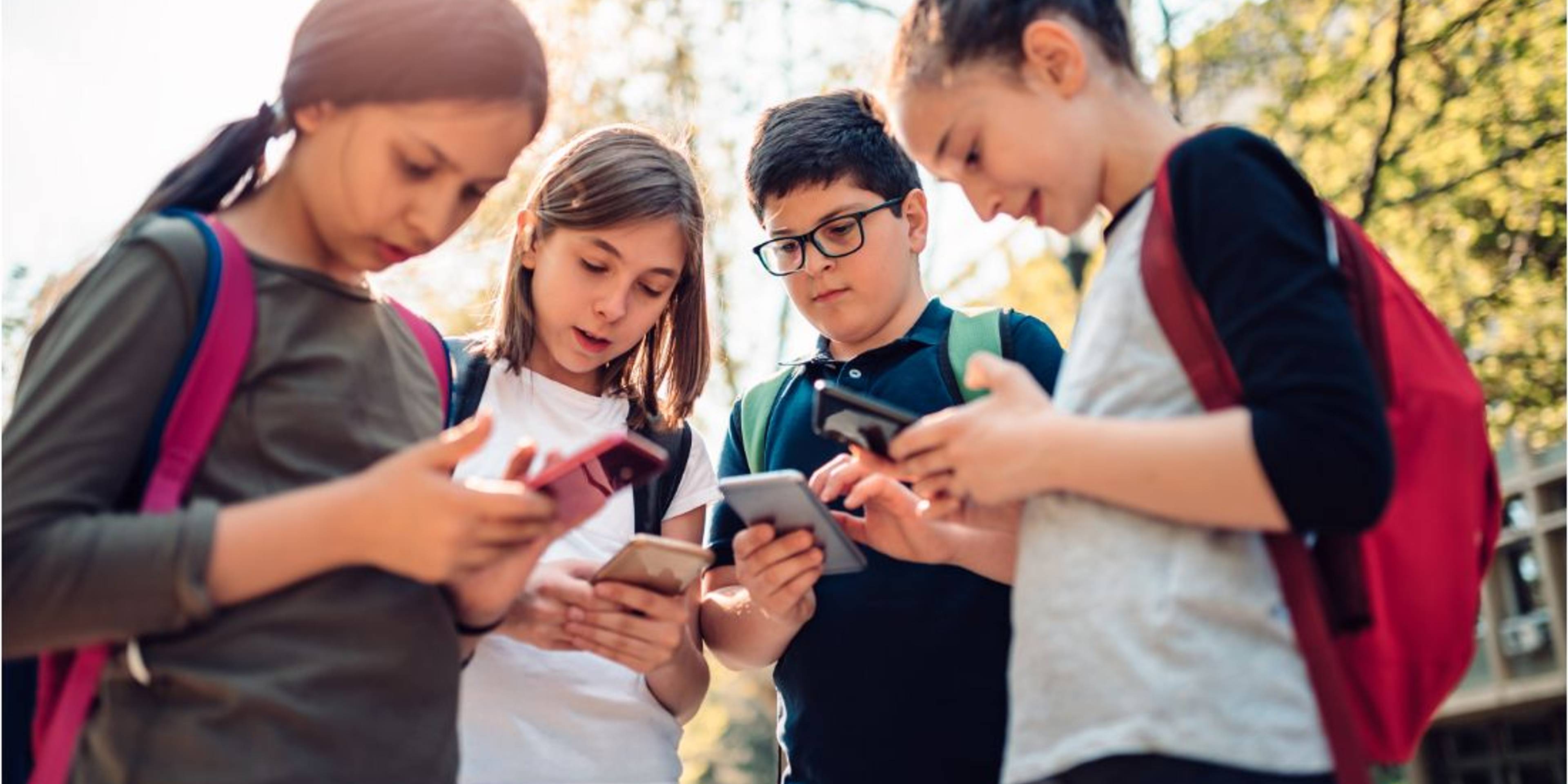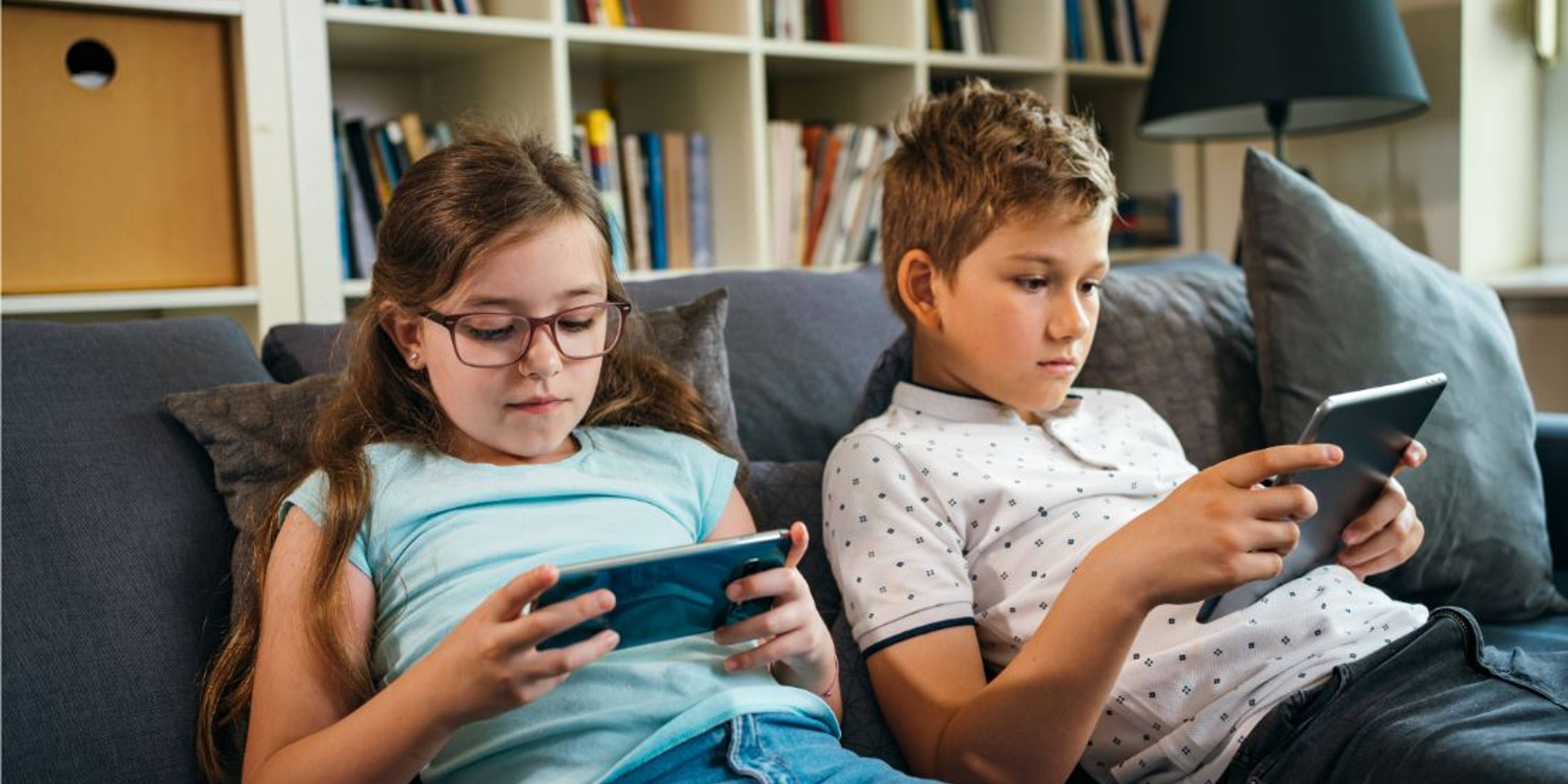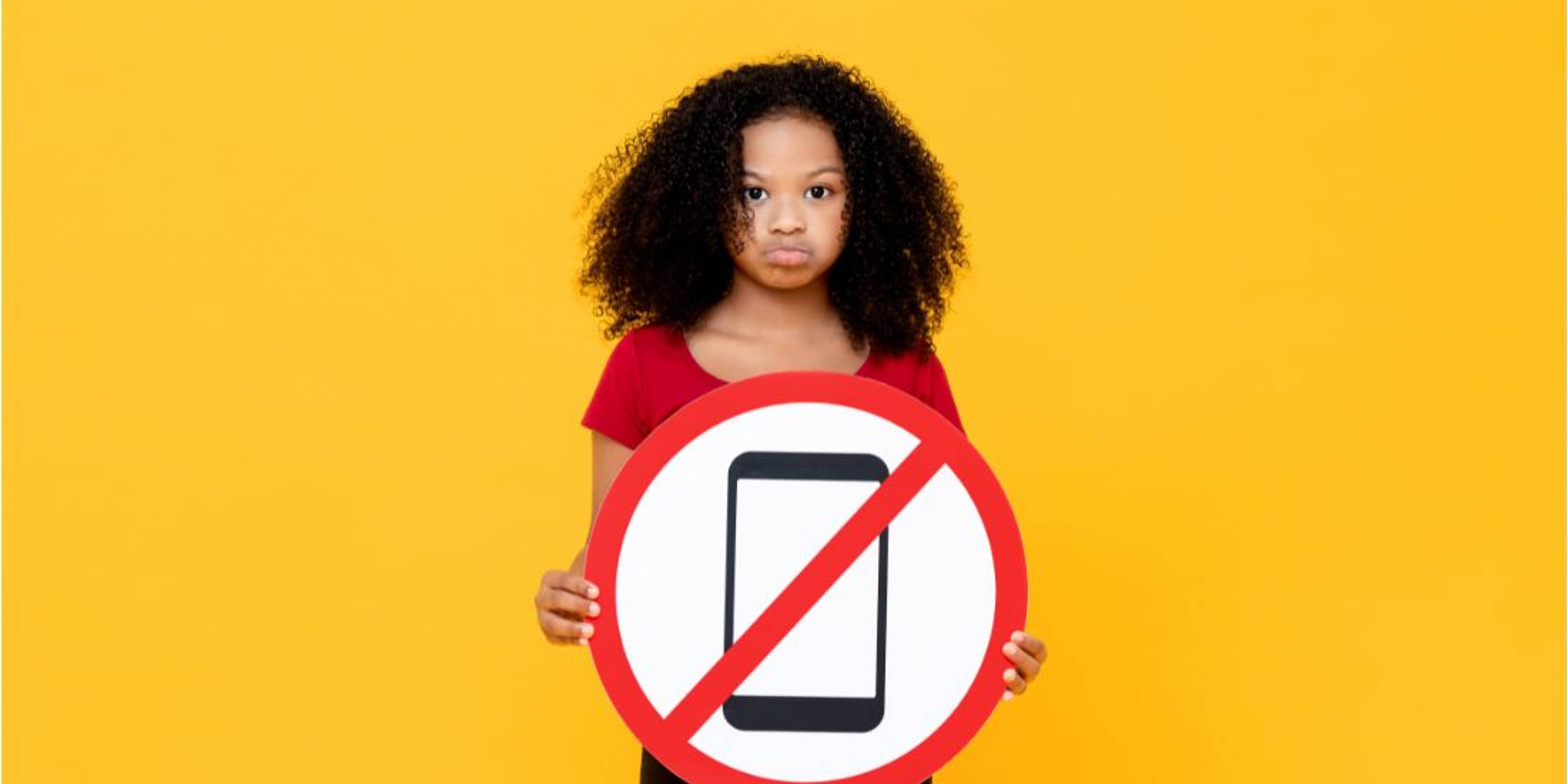May 15, 2025
Looking beyond smartphone bans

Over the last year or so, there has been a surge in public concern around smartphones and social media. Banning or restricting children’s access to smartphones and social media has grasped the attention of policy makers, schools and parents. A number of countries, including France, Turkey, Norway, Sweden, and regions of the US and Canada have introduced laws, policies or guidance for schools to ‘ban’ or heavily restrict the use of phones. In the UK, there are proposals to raise the age of ‘internet adulthood’ from 13 to 16, and to ban smartphones in schools. The third reading of a private members’ bill on this topic will be heard in parliament in July.
Whilst these bans aim to protect children from harm, recent studies highlight a lack of evidence on their efficacy.
Along with a team of international experts, our latest Researcher of the Month, Professor Victoria Goodyear, argues that, in isolation, banning smartphone and social media access fails to equip children for healthy use of technology. She suggests that there is a need to shift debates, policies and practices away from a sole focus on restricting smartphone and social media access, toward an emphasis on nurturing children’s digital skills for healthy technology use, and a rights-respecting approach which is underpinned by age-appropriate design and education.
Summary
We all know that teens spend significant portions of their time engaging with smartphones and social media. They use devices to play games, interact with friends and as a form of entertainment, and smartphones have become a significant part of their daily lives. Smartphones confer various benefits; they can aid learning, creativity, and can help young people to make and maintain friendships. Smartphones and social media are also associated with certain harms, including access to inappropriate or harmful content, and problematic use.
An ever growing body of research on associations between phone and/or social media time and adolescent health and wellbeing tends to suggest that, in moderation, screen-based activities can be advantageous for mental health and wellbeing, and other associated health and behavioural outcomes. We also know that when assessing benefits and risks, it's vital to consider what teens are doing on screens, rather than simply how long they are on them for. Digital diet is key!
In a bid to reduce the time that young people spend on screens, bans are attractive.
They are immediately actionable and relatively straightforward to enforce. Anecdotally, most media-based accounts from school leaders about the impact of smartphone bans are positive. However, there is no consistent evidence that smartphone bans have the desired positive effects, or that more restrictive policies are more effective.
At the moment, we simply don't know enough about the impact of bans. Evidence is hampered by the fact that technological developments and technology use is moving at a faster pace than research. Some studies suggest that bans are beneficial to academic outcomes and mental wellbeing. Others suggest no effects. However, many studies have methodological weaknesses, use small samples or retrospective data, and can't ascribe causal mechanisms.
Professor Goodyear’s recently published SMART Schools Study evaluated the impact of school phone policies by comparing outcomes in adolescents who attended schools that either restrict or permit phone use. It found no evidence of school restrictions being associated with overall lower levels of phone or media use, or problematic social media use, and no benefits to adolescent mental health and wellbeing, physical activity and sleep, educational attainment or classroom behaviour.
Professor Goodyear argues that whilst technology-free moments and spaces are important, we need to look beyond “stop gap solutions that do little to support children’s longer term healthy engagement with digital spaces across school, home, and other contexts, and their successful transition into adolescence and adulthood in a technology filled world.”
So where do we go from here?
Well, Professor Goodyear draws on the analogy of driving. Driving a car without first receiving training and education would be inherently dangerous. But cars also confer significant benefits, rather like digital technology. In response to increasing car accident-related injuries and deaths, cars were not banned. Instead, society focused on product safety regulations for companies (introducing things like seatbelts and airbags) and consumers (vehicle safety tests and driving rules and penalties), public infrastructure (traffic lights) and education (licences) to support safer use. The focus wasn't on preventing people from using cars. It was on supporting people to use and engage with them in safe and effective ways.
Similarly, Professor Goodyear and her colleagues argue that prescribing abstinence from all technologies in order to protect against potential harms is unrealistic and potentially detrimental in a society where technology use is a practical necessity and confers various benefits. They believe that the way forward is a child rights-respecting approach, underpinned by age-appropriate platform design and digital education. This has a dual focus on protecting children from harm and supporting the development of children’s digital skills and agency to participate in a digital society. They note that schools, teachers and parents require training and guidance to aid their active involvement in the development of children’s healthy technology use and in shaping future policies and approaches, and that since we lack evidence for the most effective approach to addressing phone and social media use in adolescents, all new approaches need to be accompanied by robust evaluation.
Implications
What can schools do?
Remember that you know your community best. As is recommended in government guidance within the UK, most settings do already have smartphone policies in place, having consulted stakeholders and made decisions about what is best for their pupils. Trust your own understanding of your students.
Remember that current research suggests that the strictness of the policy does not necessarily impact children’s outcomes. The SMART Study compared schools with different restriction levels - for example, whether phones were accessible or inaccessible to pupils, whether they had phones in their bags, pouches, lockers, or whether they simply weren’t allowed on school premises at all. It found no difference in mental health or other outcomes.
Remember that teachers and pupils value nuances in policies. A nuanced and well thought out policy can cater for different demographics of pupils, different ways of learning, different approaches and different levels of education.
Build trust by taking note of pupil voice. Find out what your support your students think that they need. Professor Goodyear’s research has found that whilst student views on smartphone bans are mixed and they tend to favour a permissive approach, most would also like some boundaries. Students are generally aware that phones could be distracting in lessons and would like more support to use them appropriately.
Try to keep up with the research. New evidence is constantly emerging. Make an effort to keep pace with it, rather than making decisions based on conjecture. Tooled Up can help here!
Remember that education is key. Bans won't help children and young people to engage with digital technology in a healthy way. Education will. Use robust resources like those from the Harvard Center for Digital Thriving. Their agency-centred approach supports children to have meaningful choice, intentionality and control over how technology fits into their lives.
Explore children’s rights online. Use the resources available on the Digital Futures for Children website. These clearly lay out key points that can be used to open up discussion and encourage us to think about children’s rights online holistically rather than simplistically.
Work in partnership with parents and carers. At the moment, there are no evidence-based age guidelines for giving children access to digital devices. Listen to our interview with Dr Kim Sylwander to find out more. Encourage families to strike a good balance between online and offline activities.
Build algorithmic literacy. We’re keeping an eye on the work of Dr Lizzy Winstone from the University of Bristol. She has produced a helpful report with recommendations, and is working on resources for schools.
And at home?
Remember that open communication is key. Your children are likely to be having very different digital experiences to you, and a very different childhood to the one that you remember. Chat with them about their online world, ask them about their experiences, lean in, and keep going with conversations, even if they feel tricky.
Tooled Up members can listen to our interview with Professor Victoria Goodyear here. Remember, if you are a Tooled Up member, you also have access to our whole platform, which is packed with evidence-based resources designed to support children in the digital world.

Professor Victoria Goodyear
Professor of Physical Activity, Health and Wellbeing, University of Birmingham
Professor Victoria Goodyear is Professor of Physical Activity, Health and Wellbeing at the University of Birmingham. Professor Goodyear is a teacher by background, and an academic expert in school-based research on youth health and wellbeing. A key focus of her work is on digital technologies, relating to how smartphones and social media inform young people’s mental health, wellbeing and physical activity. She has recently led a large NIHR funded study evaluating the impacts of school smartphone policies – SMART Schools – on adolescent mental health and wellbeing.
Professor Victoria Goodyear
Professor of Physical Activity, Health and Wellbeing, University of Birmingham
Related Resources

Family Digital Values
Scroll our research gallery

Feb 17, 2026
Children's Experiences of ADHD
While there have been many empirical studies of childhood ADHD, there have been few qualitative studies investigating first-hand accounts of the lived experiences of children. Much of the literature focuses on the perspectives of parents or teachers, rather than centring children’s voices. But what are children's thoughts, feelings and experiences? Our latest Researcher of the Month, PhD candidate Daphne Ling, has recently published findings which begin to address this research gap.

Jan 19, 2026
The power of reading: books, vocabulary and learning
Did you know that 2026 is the UK’s National Year of Reading? This long-overdue initiative reflects growing concern and renewed commitment around children’s reading and literacy. As Dr Maria Korochkina, our latest Researcher of the Month, puts it: “The ability to read opens up worlds. Reading enables children to progress into post-primary education and provides the basis for lifelong learning and prosperity into adulthood”. Frequent readers tend to have a stronger understanding of both their own and others’ emotions. They are often better able to communicate these emotions, a skill linked to higher emotional intelligence and improved mental wellbeing. Reading also encourages cause-and-effect reasoning and helps children imagine scenarios beyond the immediate moment - developing the skill of -future-thinking'. A rich vocabulary underpins learning across the school curriculum, strengthens thinking and communication skills, and predicts both academic attainment and later life outcomes. Research consistently shows that the most effective way to build vocabulary is through reading. However, learning to read well is not quick or effortless. The journey to skilled reading typically spans around ten years, requiring high-quality classroom instruction alongside sustained practice through independent reading. For many children, this process is painstaking, demanding consistent teaching, encouragement and opportunity over time. Against this backdrop, recent evidence presents a worrying picture. Fewer children are reading for pleasure than ever before. In 2024, only one in three UK children and young people aged eight to 18 reported enjoying reading in their free time. Even more strikingly, just one in five said they read daily for pleasure, the lowest level recorded since the National Literacy Trust began collecting this data in 2005. This matters because reading ability and reading enjoyment are deeply intertwined. Children who find reading effortful are far less likely to choose to read independently. Dr Korochkina’s research highlights how early reading experiences shape later habits: difficulties with phonic and morphological knowledge in the early stages of reading acquisition can have a snowball effect, reducing confidence, fluency and motivation over time. Her work also offers a powerful note of optimism. Books that children actively choose to read, including contemporary, popular texts, provide rich opportunities to develop vocabulary, particularly when children read widely. Ensuring access to a diverse range of engaging reading material, alongside strong early instruction, can play a vital role in building both reading skill and reading motivation. Fostering confident, motivated readers requires long-term commitment. It is not enough for children simply to have books available to them. They need skilled teaching, time, practice and a culture that values reading as both a skill and a pleasure.

Dec 15, 2025
Crossing the line into cybercrime
As the most digitally connected generation so far, young people today face new challenges. Our latest Researchers of the Month, Professor Davidson and Dr Farr, have found that in the last decade, an increasing number of young people (particularly young men) have committed serious cybercrime offences, particularly hacking and money laundering. Their new book, written following a large research project funded by the European Union’s Horizon 2020 research and innovation programme, seeks to understand the drivers behind this trend. It explores a range of potential factors that may lead young people to engage in risky online behaviours, and to identify effective pathways for prevention.

Nov 16, 2025
Supporting Children’s Use of AI
Children and young people are now growing up surrounded by AI, and the landscape is shifting fast. In the UK, recent data from Ofcom and Internet Matters suggests that around half of children aged 8–17 regularly use generative AI tools such as ChatGPT, Bard or Snapchat’s MyAI. Many describe these interactions as feeling like conversations with a friend. A recent report from Common Sense Media found that 33% of teens had actually chosen to talk to an AI companion instead of a real person about something important or serious. Whether children are asking voice assistants to answer their questions, relying on chatbots for bedtime stories, using learning apps for revision or engaging with large generative AI models, it’s essential to remember that most of these systems were built with adults in mind, not children. They often assume levels of attention, memory and emotional maturity that younger users simply don’t have. Even older children and teenagers, who increasingly use AI as a supportive confidante (often without adult supervision or knowledge), are still learning to navigate boundaries around trust, identity and emotion. Our latest Researcher of the Month, Dr Nomisha Kurian, wants this to change. She has developed a new framework called Developmentally Aligned Design (DAD), which outlines how AI can be built with children’s needs, vulnerabilities and strengths at its core. She also chatted to us at Tooled Up, sharing practical tips on recognising when children may be relying too heavily on AI for emotional connection, how to talk to them about healthy boundaries, and how parents and educators can help children and young people use AI tools safely, creatively and critically.
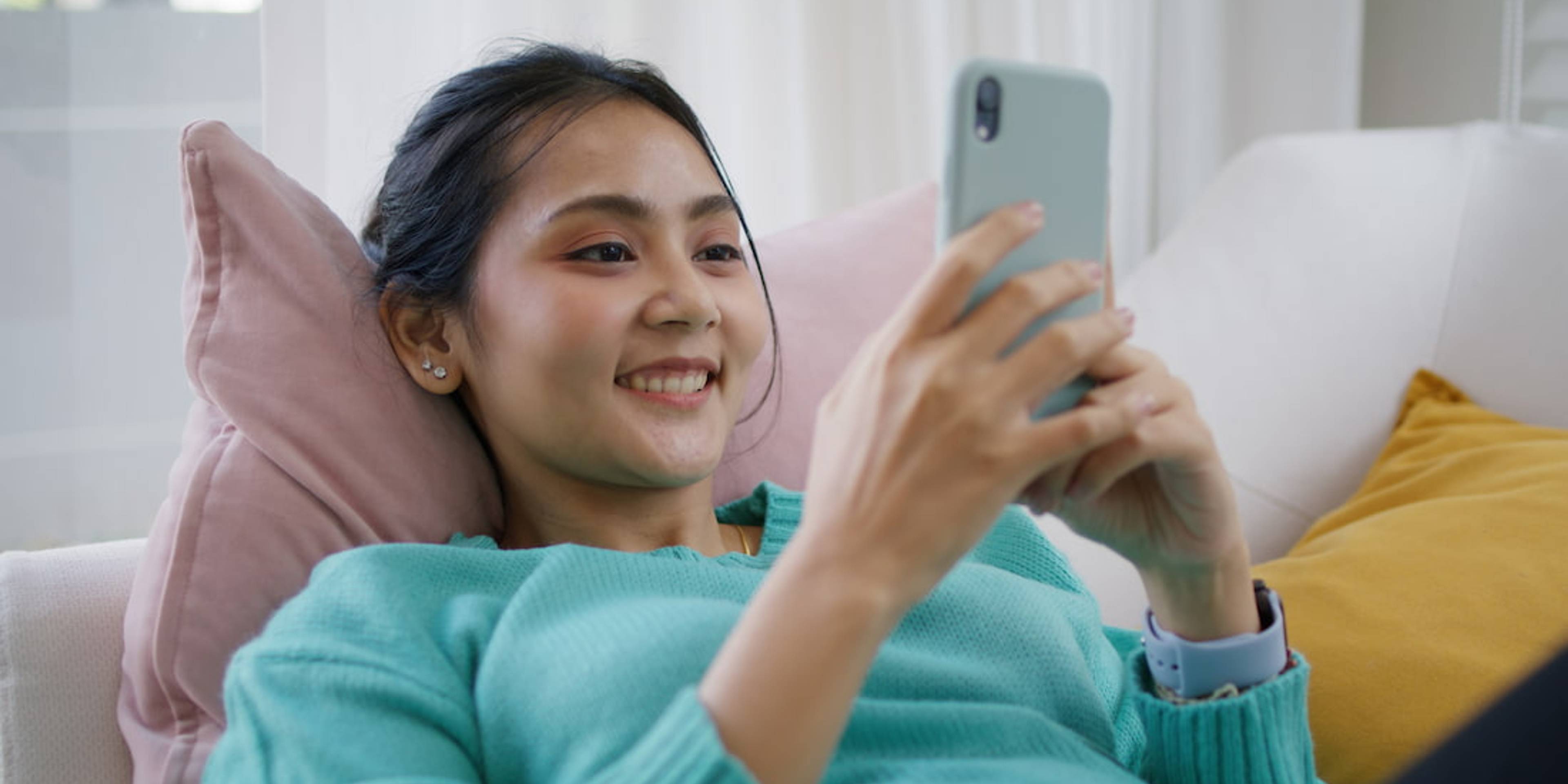
Oct 16, 2025
Algorithmised Girlhood: Teenage Girls and TikTok
As part of the early stages of her PhD study, our latest researcher of the month, Chiara Fehr, ran several focus groups about experiences of TikTok with eight 17 year old girls. Using creative methods, such as ‘TikTok show and tells’ a collaging session and a utopic mapping exercise, Chiara is exploring whether dominant narratives around growing up in a digitised world reflect the real life experiences of teens, and has summarised her findings so far in a recent article.
![“[They use devices] alllllllll day long”. What do children think about our tech use?](https://cdn.sanity.io/images/jxfh43in/content-prod-d2c/79f219275088655f59590f61ff29b6bc8b0d77f8-1100x733.jpg?w=3840&h=1920&q=70&fit=crop&crop=center&auto=format)
Sep 09, 2025
“[They use devices] alllllllll day long”. What do children think about our tech use?
We're all used to reading about children and young people's increasing use of digital tech. But what about adults' use? And what impact might our tech use have on family life? Parents today are spending an unprecedented amount of time on their devices. One study found that parents spend an average of nine hours per day engaged with screen devices. Over four hours of this is on smartphones, averaging 67 phone checks per day. Despite children's central role in family life, their voices and perspectives on the device use of the adults around them have been largely neglected in research. Along with colleagues, our latest Researcher of the Month, Professor Cara Swit, has published a fascinating study exploring the experiences and perceptions of children aged six to nine about their parents’ device use at home and its impact on them.

Aug 13, 2025
Students’ views on smartphone bans
In recent years, banning or restricting children’s access to smartphones and social media has grasped the attention of policy makers, schools and parents. A number of countries, including France, Turkey, Norway, Sweden, and regions of the US and Canada have introduced laws, policies or guidance for schools to ‘ban’ or heavily restrict the use of phones. Within Ireland, in 2024, the Minister for Education announced her intention to introduce smartphone bans in post-primary schools, whilst at the same time acknowledging that individual schools are best placed to decide on the scope and scale of restrictions for their students. Whilst these bans aim to protect children from harm, and teachers often anecdotally report seeing benefits, evaluations of existing research highlight a lack of evidence on their efficacy. At the moment, we simply don't know enough about the impact of bans. Evidence is hampered by the fact that technological developments and technology use is moving at a faster pace than research. Some studies suggest that bans are beneficial to academic outcomes and mental wellbeing. Others suggest no effects. However, many studies have methodological weaknesses, use small samples or retrospective data, and can't ascribe causal mechanisms. Our latest Researcher of the Month, Dr Megan Reynolds, has recently published a paper which explores young people's perspectives and experiences of smartphone bans in their schools. Unlike most previous research, it centres student voices in this high profile issue.

Jul 14, 2025
Do teens with mental health conditions use social media differently than their peers?
As Luisa Fassi, our new Researcher of the Month, comments, "The link between social media use and youth mental health is hotly debated, but hardly any studies look at young people already struggling with clinical-level mental health symptoms". In fact, Luisa's large systematic review and meta-analysis found that only 11% of papers published on the topic since 2007 focused on young people with clinical conditions. Her review also showed that the data used to evidence mental health conditions in these existing studies is not always strong or especially robust. Many report links between social media and mental health on the basis of short self-report questionnaires, where young people are asked about symptoms. Whilst this wasn't found as part of Luisa's review, it is also the case that very few papers in the field differentiate between different mental health conditions, or examine different symptoms or conditions (such as anxiety, ADHD or eating disorders) in isolation. To address this research gap, Luisa and colleagues have recently published a fascinating and nuanced paper. It analyses both quantitative and qualitative dimensions of social media use from a nationally representative survey of 3,340 teens in the UK aged between 11 and 19 years old, which was conducted by NHS Digital in 2017. Rather than gathering mental health data from self-report questionnaires, the young people in the survey underwent a full clinical screening, which included interviews with the young people, their parents and teachers. Information about social media use came from questionnaires completed by participants. They were not asked about specific platforms. Luisa used this data to gather novel insights into how social media and mental health are related in teens who both meet and do not meet diagnostic criteria for a wide range of mental health conditions. The study does not establish any causal links, but it does reveals a range of differences between young people with and without mental health conditions when it comes to social media.

Jun 17, 2025
Navigating the feed: younger adolescents' reflections on algorithmically curated social media
Our latest researcher of the month, Roxana Pomplun, has investigated the interactions, experiences and perceptions of younger adolescents, aged 11, 12, and 13, with algorithmically curated platforms such as TikTok, YouTube Shorts, Spotlight on Snapchat and Reels on Instagram. These kinds of platforms use algorithms to personalise and tailor feeds, harnessing user data to suggest content that the individual is most likely to be interested in and engage with. As such, young people have little control over what they are seeing in their feeds. Tech companies are not yet required to be transparent about the data that they are collecting, but it tends to include demographic information such as age, gender or location, along with use patterns. Whilst these sites dominate the digital lives of tweens and teens, until now they have received little dedicated research attention, particularly in relation to younger users, with most existing studies focusing on older teens. Whilst we know that most social media platforms have age limits of 13, we also know that many younger children are active users, particularly of algorithmically curated platforms like TikTok and YouTube Shorts. Given that early adolescence is a life phase marked by critical neurological development, identity development and heightened susceptibility to mental health issues, deepening our understanding of how younger adolescents engage with social media is vital. Roxana's qualitative research, where a group of young people eloquently explore their own experiences and perceptions, broadens our knowledge of social media use within an age group that appears increasingly aware of the digital influences shaping their online experiences, yet which is still in need of support to fully navigate these ecosystems.
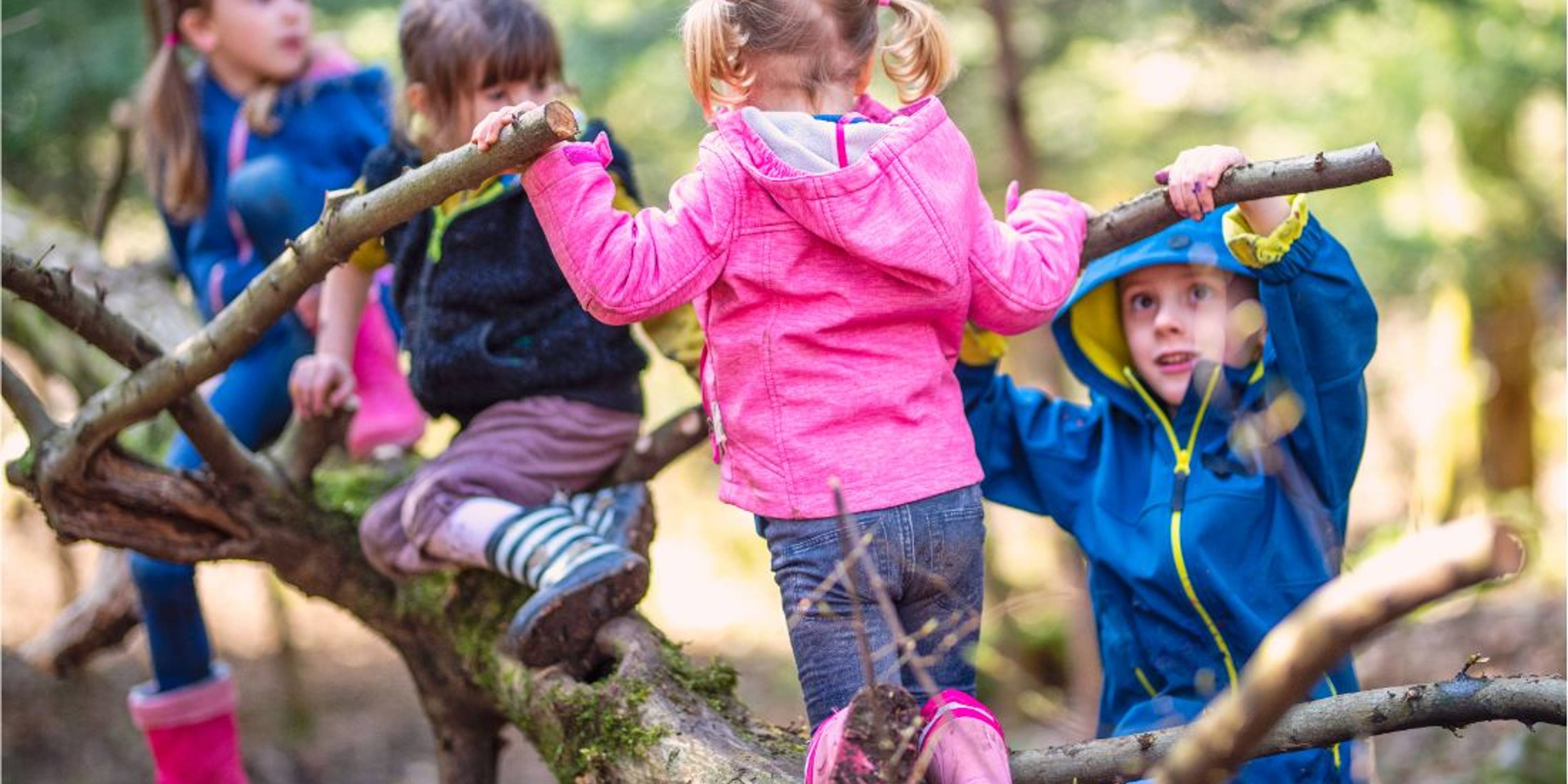
Apr 22, 2025
Encouraging adventurous play in the preschool years
Tune into our podcast interview with April's researchers of the month here. As well as providing numerous opportunities for exploration, joy, and expression, outdoor and adventurous play - the type of play that allows children to take age-appropriate risks - is associated with a range of positive health behaviours and outcomes. Yes, we're talking about the kind of play that might leave us adults with our hearts in our mouths at times, as children start to disappear up a tree, or engage in a rough and tumble game of chase. But its benefits are wide-ranging and known impacts include increased levels of habitual physical activity alongside better mental health and positive mood. In 2019, Dr Hesketh was involved in the creation of physical activity guidelines in the UK, which explicitly note the importance of outdoor play for children in the preschool age group. We know quite a lot about the play habits of school-aged children, but until now, have had significantly less data on their younger counterparts. Our Researchers of the Month, Dr Kathryn Hesketh and Professor Helen Dodd set out to discover how much time preschool-aged children spend playing in a range of indoor and outdoor spaces, and how adventurously they are playing within them. In the first national survey of play in children of this age, they asked over 1000 parents of two to four year olds about their children’s play habits, finding that, on average, children aged two to four spend around four hours per day (outside of educational settings) playing. Just under 50% of this was spent playing outdoors. Their findings shed interesting light on some inequalities in play, even in the youngest age group, which may exacerbate existing inequalities in health.
